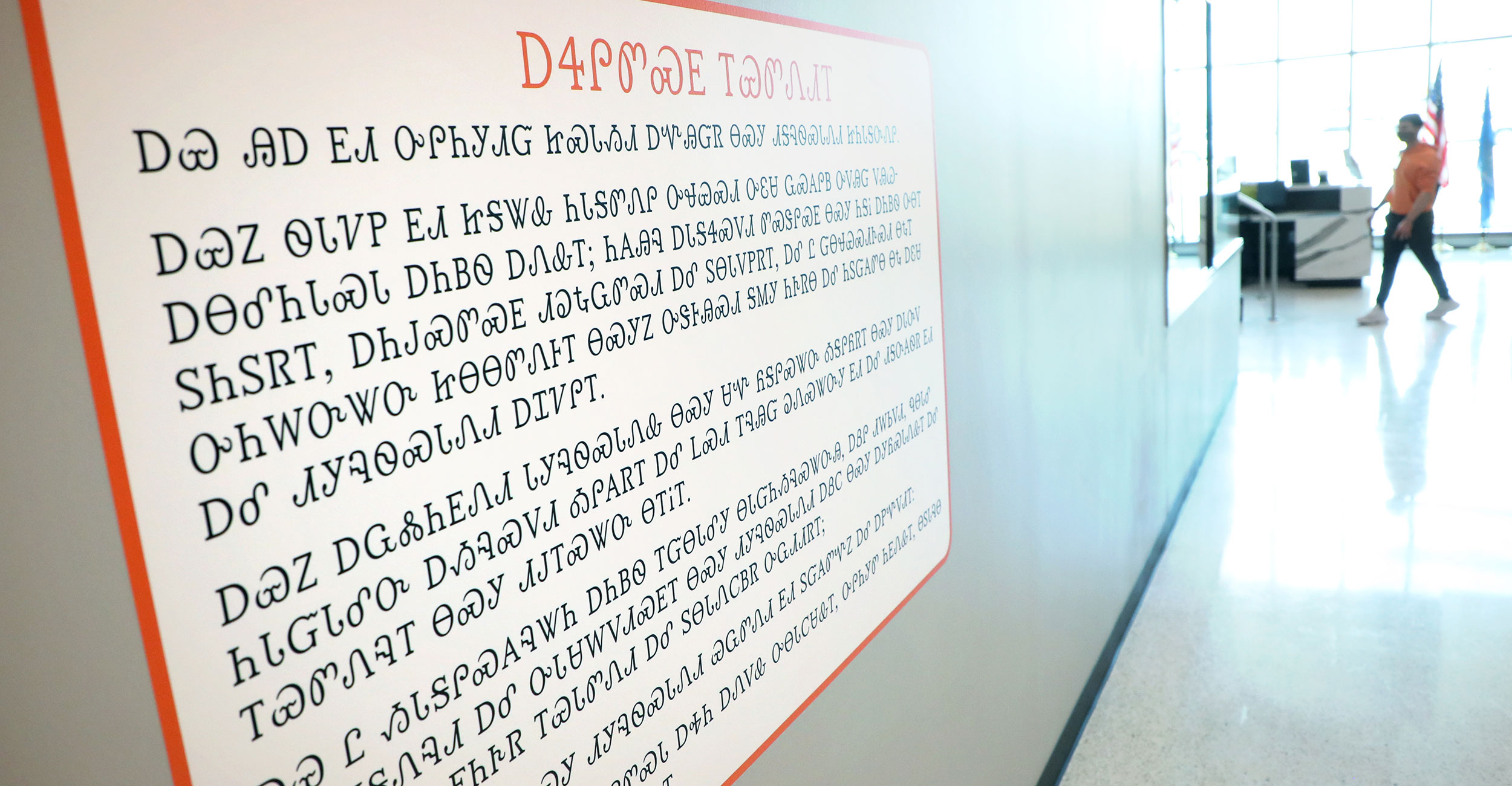
Cherokee language classes offered to medical students
Friday, October 29, 2021
Media Contact: Sara Plummer | Communications Coordinator | 918-561-1282 | sara.plummer@okstate.edu
Learning a language is more than just conjugating verbs and figuring out greetings. Through learning language, students also learn about culture, history and community.
Earlier this fall, the Oklahoma State University College of Osteopathic Medicine at the Cherokee Nation offered students from both campuses the opportunity to enroll in a weekly Cherokee language class that meets virtually.
Ryan Mackey, who goes by his Cherokee name Wahde Galisgewi, is the course instructor and has been teaching the Cherokee language for 19 years.
“There is a lot to love about Cherokee. It’s complexity and precision in describing the world around us is amazing and the beauty of the sound is hard to deny, but for me it’s the connection to the deep culture and Cherokee thinking of our people that I love the most,” Galisgewi said. “It has changed the way I think, and it has changed how I see the world. It has opened up an ability to understand and communicate Cherokee cultural ideas that I didn’t have access to with English alone.”
Ashton Glover Gatewood is a member of the Choctaw Nation of Oklahoma with Chickasaw and Cherokee ancestry. She previously took Choctaw language classes at the Oklahoma City Choctaw Alliance and has a bachelor’s degree in Spanish, so the opportunity to learn Cherokee was exciting.
“This is my heritage, to know the language of my ancestors. Language tells us so much about a culture, such as its values and traditions,” Gatewood said, and she and her classmates are lucky to have Galisgewi as their instructor. “He is highly skilled in oral tradition and storytelling. During classes, we learn about culture and practice language through immersion followed by grammatical sessions.”
And learning some of the Cherokee culture is a key aspect of learning the Cherokee language, Galisgewi said.
“The language cannot be truly understood without some cultural knowledge. Sometimes explaining how the language and culture interact in context is the only way it can be used in effective communication,” he said.
Third year medical student Laney Palmer-Mitchell said she wanted to take the Cherokee language classes to better connect with her culture as well as have a way to relate more strongly with her future patients.
“I intend to work in the tribal health system following my residency and I want to make sure that my Native American patients know that I am relatable and trustworthy. Being able to speak a bit of the language will certainly help me do this,” Palmer-Mitchell said.
Each course, taught over Zoom, is about two hours long with portions where Cherokee is the only language spoken and the students must figure out what each word means.
Palmer-Mitchell said it’s been a very effective learning technique.
“I have learned the way they structure their language is very different than English, but that it was partially based off the English alphabet,” she said, and she was surprised to learn she had been saying several Cherokee words incorrectly for years. “But we are getting it down and having a fabulous time doing it.”
Gatewood said she hopes by taking the Cherokee language classes, she can learn more about the Cherokee Nation and its people.
“I know having the cultural knowledge and language skill set will prepare me to be a better physician because I’ll be more connected with the community. I’ll be able to relate with patients on a deeper level and foster the rapport that leads to better health outcomes and patient satisfaction."
After the course is complete, students should be able to use key phrases and vocabulary to communicate with Cherokee speaking patients when they are physicians, Galisgewi said.
“Stepping into another culture always helps us understand our own a little better. We have made the languages immersive, culturally as well as linguistically,” he said, and although they studied the Cherokee language, it goes beyond one language and culture.
“The experience of learning some of the language and culture of the Cherokee Nation allows the students to develop skills that will enable them to accommodate other tribal communities if they work with other Native American nations. It should also help them with a deeper understanding of diversity among their potential patients in the future.”
